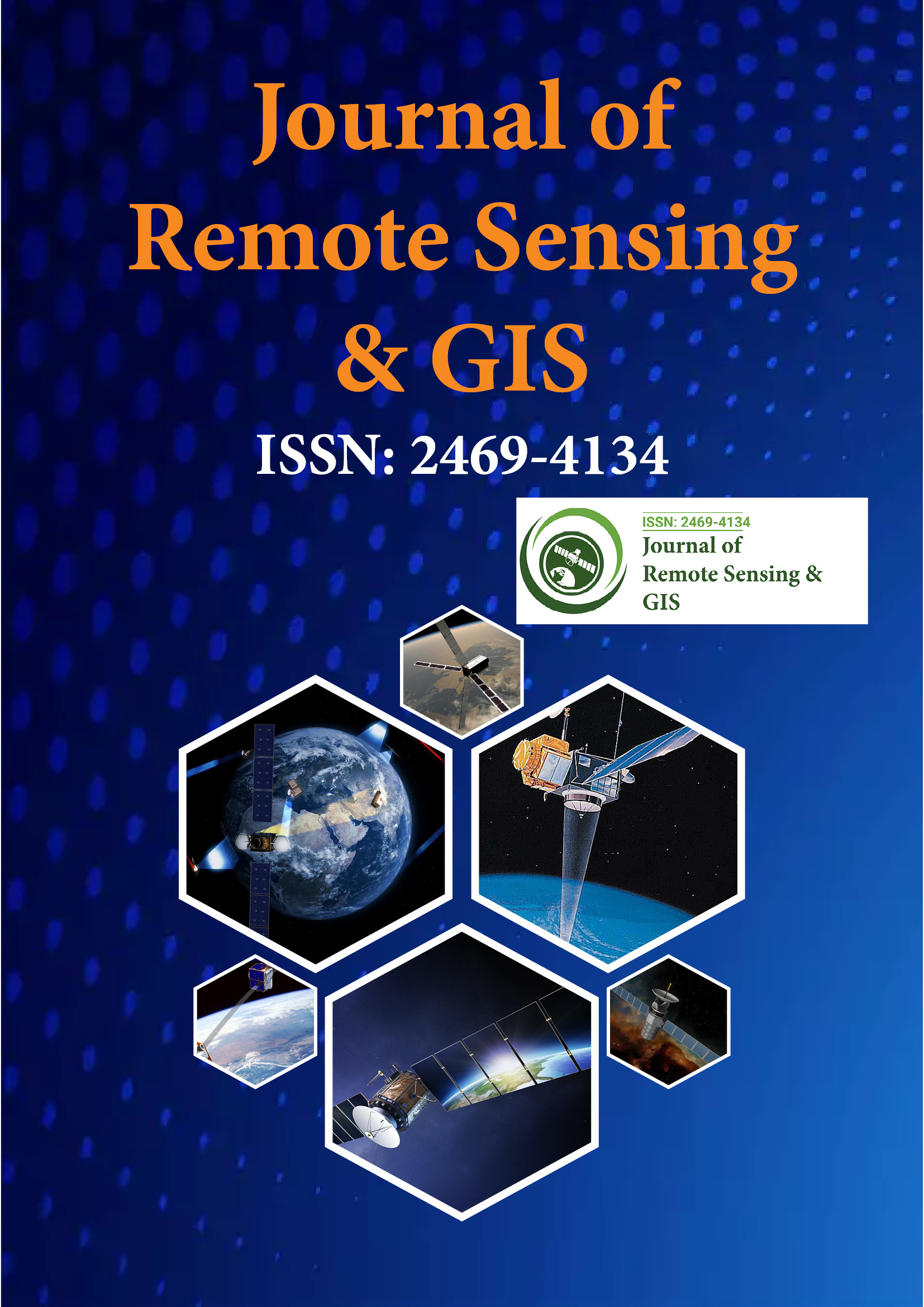ఇండెక్స్ చేయబడింది
- J గేట్ తెరవండి
- RefSeek
- హమ్దార్డ్ విశ్వవిద్యాలయం
- EBSCO AZ
- OCLC- వరల్డ్ క్యాట్
- పబ్లోన్స్
- అంతర్జాతీయ సైంటిఫిక్ ఇండెక్సింగ్
- యూరో పబ్
- గూగుల్ స్కాలర్
ఉపయోగకరమైన లింకులు
ఈ పేజీని భాగస్వామ్యం చేయండి
జర్నల్ ఫ్లైయర్

యాక్సెస్ జర్నల్స్ తెరవండి
- ఆహారం & పోషకాహారం
- ఇంజనీరింగ్
- ఇమ్యునాలజీ & మైక్రోబయాలజీ
- క్లినికల్ సైన్సెస్
- జనరల్ సైన్స్
- జెనెటిక్స్ & మాలిక్యులర్ బయాలజీ
- నర్సింగ్ & హెల్త్ కేర్
- న్యూరోసైన్స్ & సైకాలజీ
- పర్యావరణ శాస్త్రాలు
- ఫార్మాస్యూటికల్ సైన్సెస్
- బయోఇన్ఫర్మేటిక్స్ & సిస్టమ్స్ బయాలజీ
- బయోకెమిస్ట్రీ
- మెటీరియల్స్ సైన్స్
- మెడికల్ సైన్సెస్
- రసాయన శాస్త్రం
- వెటర్నరీ సైన్సెస్
- వ్యవసాయం మరియు ఆక్వాకల్చర్
- వ్యాపార నిర్వహణ
నైరూప్య
ఉత్తర శ్రీలంక యొక్క సర్వీస్ ఓరియెంటెడ్ యాక్సెసిబిలిటీ మరియు రోడ్ డెవలప్మెంట్ పొటెన్షియల్స్పై GIS విశ్లేషణ
పిన్నవాలా సంగసుమన మరియు శివరస శివారుబన్
పట్టణ-గ్రామీణ అనుసంధానం ప్రధానంగా రవాణా సౌకర్యాల లభ్యతపై ఆధారపడి ఉంటుంది కాబట్టి,
మౌలిక సదుపాయాల అభివృద్ధిపై ఏదైనా ప్రాజెక్ట్ అభివృద్ధి చేయవలసిన ప్రస్తుత రహదారుల ద్వారా అందుబాటులో ఉండే స్థాయికి సంబంధించినది
. యుద్ధానంతర శ్రీలంకలో, ముఖ్యంగా ఉత్తర
ప్రావిన్స్లో చాలా ప్రాంతీయ అభివృద్ధి కార్యక్రమాలు అనేక కారణాల వల్ల ఆశించిన డెలివరీలను చేరుకోలేదు.
తగినంత రహదారి నెట్వర్క్లు లేనందున సేవలకు తక్కువ ప్రాప్యత ఉన్న ప్రాంతాలకు ప్రాధాన్యత ఇవ్వడానికి ప్రత్యేక వ్యవస్థ ఇంకా ఉపయోగించబడలేదు . ఒక
దశాబ్దం యుద్ధం ముగిసినప్పటికీ, జాఫ్నా జిల్లాలోని గ్రామీణ ప్రాంతాల్లోని చాలా రహదారులు ఇప్పటికీ దయనీయ స్థితిలో ఉన్నాయి. అందువల్ల, ఉప ప్రాంతాల అభివృద్ధి స్థాయిని గుర్తించడానికి మరియు ప్రాప్యత స్థాయి ఆధారంగా ప్రాంతాలను వర్గీకరించడానికి మరియు చివరకు అభివృద్ధి చేయవలసిన రహదారి నెట్వర్క్లకు ప్రాధాన్యత ఇవ్వడానికి
భౌగోళిక సమాచార వ్యవస్థల (GIS) ఆధారంగా ఒక క్రమబద్ధమైన విధానాన్ని సూత్రీకరించడం ఈ పేపర్ లక్ష్యంగా పెట్టుకుంది . ఏదైనా రహదారి అభివృద్ధి ప్రాజెక్ట్ ద్వారా. ఈ లక్ష్యాలను సాధించడానికి , ప్రస్తుత పరిశోధన డేటా సేకరణ కోసం తీర్పు నమూనా పద్ధతిని ఉపయోగించి జాఫ్నా జిల్లాను ఎంపిక చేసింది . చాలా డేటా ప్రభుత్వ సంస్థలు మరియు ఓపెన్ సోర్సెస్ మరియు ప్రాదేశిక విశ్లేషణ యొక్క నాలుగు పద్ధతులు వంటి ద్వితీయ మూలాల నుండి వచ్చింది ; డేటా విశ్లేషణలో దూరం, సాంద్రత, రీక్లాస్ మరియు వెయిటెడ్ ఓవర్లే ఉపయోగించబడ్డాయి. 15 సేవలకు ప్రాప్యత ఆధారంగా ప్రాంతాన్ని ఐదు కీలక అభివృద్ధి క్లస్టర్లుగా విభజించే అవకాశం ఈ పేపర్లో కనుగొనబడిన వాటిలో ఒకటి . జాఫ్నా జిల్లాలోని ప్రతి డివిజనల్ సెక్రటేరియట్ డివిజన్ (డిఎస్డి) అభివృద్ధి స్థాయి పూర్తిగా రోడ్ నెట్వర్క్ నాణ్యత మరియు సేవలకు ప్రాప్యతపై ఆధారపడి ఉంటుందని వెల్లడించింది . జాఫ్నా జిల్లాలో ఐదు అభివృద్ధి ఆధారిత ప్రాంతాలలో, రెండు ఉపాంత విభాగాలు ఉన్నాయి; డెల్ఫ్ట్ మరియు వడమార్చి ఈస్ట్ 30% కంటే తక్కువ యాక్సెసిబిలిటీని కలిగి ఉంది మరియు A లేదా B క్లాస్ రోడ్లు పట్టణ కేంద్రాలకు అనుసంధానించబడలేదు. ఇంకా, ప్రధాన రహదారులకు కనెక్టివిటీ లేకపోవడం మరియు గ్రామీణ రహదారుల అధ్వాన్న స్థితి జాఫ్నా జిల్లా ప్రాంతీయ అభివృద్ధిపై ప్రతికూల ప్రభావం చూపింది. ఈ కాగితం ద్వారా పరిచయం చేయబడిన పద్ధతిని ప్రాంతీయ భౌతిక ప్రణాళికకు వర్తింపజేయాలని సిఫార్సు చేయబడింది .